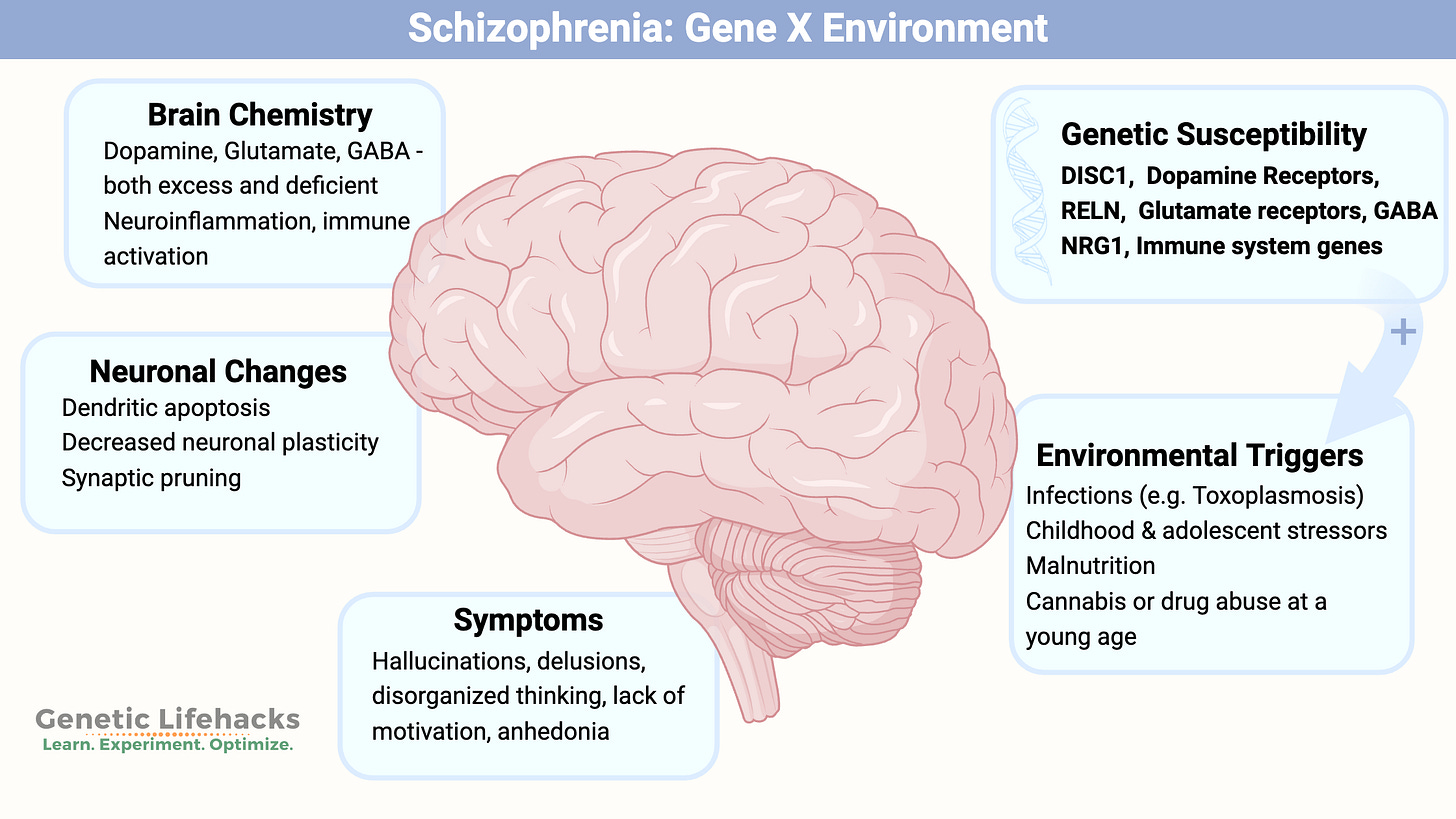Schizophrenia: genes X environment
New on Genetic Lifehacks:
Schizophrenia: Genetic and Environmental Factors
(Member requested article!)
The research on schizophrenia lays out how genetic susceptibility combines with environmental factors, such as parasite infections or childhood abuse, to alter the way the brain functions when it reaches adulthood. Even if you don't have schizophrenia or know someone with it, you still may find the article interesting. I was fascinated by the research on how the timing of brain development interacts with the immune system and stressors in causing the neuronal changes that cause schizophrenia.
Coming soon:
Salt-sensitive blood pressure
Asthma genes
Retinal detachment
Have a suggestion for an article? Submit it here.
Interesting new studies:
1) Autism symptoms reversed in fraternal twins
This is an interesting case study of twin girls who were diagnosed with autism at 20 months. It states: "A parent-driven, multidisciplinary, therapeutic intervention involving a variety of licensed clinicians focusing primarily on addressing environmental and modifiable lifestyle factors was personalized to each of the twin’s symptoms, labs, and other outcome measures. Dramatic improvements were noted within several months in most domains of the twins’ symptoms, which manifested in reductions of Autism Treatment Evaluation Checklist (ATEC) scores from 76 to 32 in one of the twins and from 43 to 4 in the other twin." So while not a complete reversal in one of the girls, still a substantial improvement. The study goes into detail on the environmental and lifestyle factors that were changed.
2. Circadian rhythm strongly affects performance in Olympic athletes
Just in time for the Olympics, a new study looked at Olympic athlete swim times from 2000 - 2016 correlated to time of day and circadian clock effects. "Performance was strongly affected by time-of-day, showing fastest swim times in the late afternoon around 17:12 h, indicating 0.32% improved performance relative to 08:00 h. This study reveals clear effects of time-of-day on physical performance in Olympic athletes. The time-of-day effect is large, and exceeds the time difference between gold and silver medal in 40%, silver and bronze medal in 64%, and bronze or no medal in 61% of the finals."
New on Longevity Lifehacks:
Gut Microbiota and Alzheimer's Disease: Genetic Association Study
Graphical overviews for the new article (for all the visual learners):





